| Corcovado National Park Photos Index | |
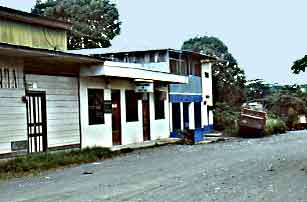 |
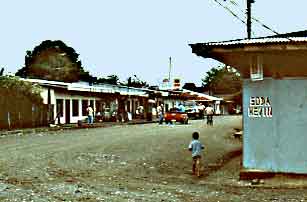 |
|
Corcovado National Park headquarters (above, left) are located in the town of Puerto Jimenez (above, right) in. southwest Costa Rica. This is the last stop before either walking or flying to Corcovado. After busing here, we flew via bush plane into Sirena Biological Station, research headquarters within Corcovado National Park. |
|
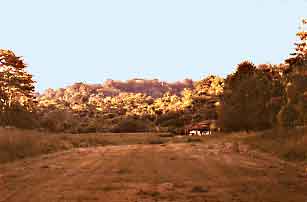 |
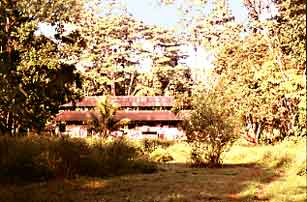 |
|
Grass airstrip (above, left) and main building (right) at Sirena Biological Station. We pitched our tent on the second story open-sided floor of this building along with other researchers and occasional tourists. Weather was hot and very humid for our late summer visits. Rains occurred nearly every afternoon. Clothes were usually damp. |
|
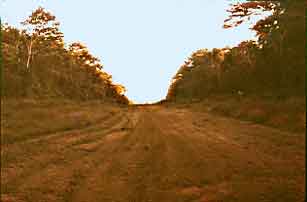 |
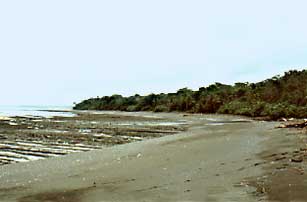 |
|
Grass airstrip looking in opposite direction from above photo. It leads to the Pacific Ocean and was great for early morning/evening walks and wildlife viewing. |
The beach at Corcovado National Park. As you can see low tide can be very low. It was a good spot to view large mammal tracks such as those of the jaguar. |
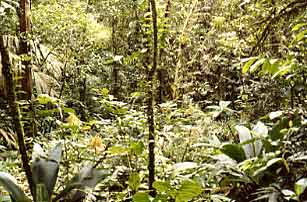 |
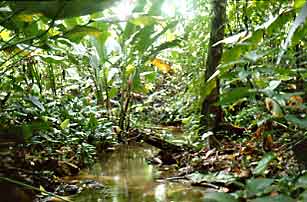 |
|
Per Dr. Larry Gilbert, Univ. of Texas,.."the approx. 80.000 acres of Corcovado Park constitute the last substantial lowland rainforest on the Pacific side of Central Am." |
Our Univ. of Miami team studied species in the family Marantaceae which were often found along stream-banks such as Quebrada Camaronal shown above. |
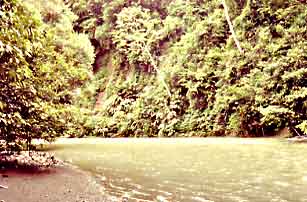 |
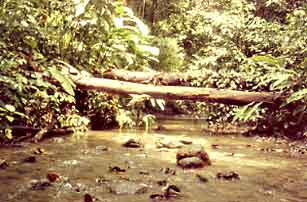 |
|
Corcovado National Park is traversed by numerous rivers and streams. The left photo is of the Rio Claro. Note its steep bank. Much of the park is very steep - and muddy in the rainy season. The photo to the right illustrates one welcome means of crossing smaller water courses. |
|
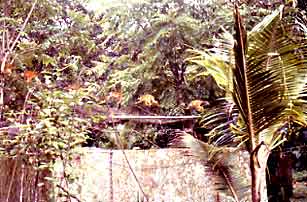 |
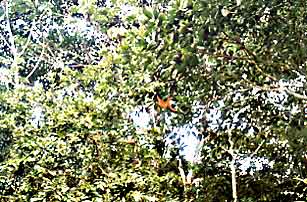 |
|
Squirrel monkeys traveling through our lab area (left). Spider monkey at edge of airstrip (right). Corcovado is world famous for its biodiversity. 4 species of monkeys are easily seen. In addition to the above, howler and capuchin monkeys are common. 310 bird species have been identified here. |
|
|
Our research at Corcovado occurred in 1990 & 1991. For birders this is a must visit destination. The birds are magnificent and viewable. (Once heard/seen, you will never forget the toucans!) To quote Dr. Gilbert further, "Foster, Gentry, and other widely traveled tropical tree specialists rank Corcovado's rainforests with the best examples of Asia and South America." Art Pedersen of the World Wildlife Fund wrote in 1988 of Corcovado: "Mammals include the jaguar, tapir, white-lipped peccaries, and three different species of anteaters...Also recorded are 75 species of bats, 117 species of reptiles, over 250 species of butterflies and a staggering, 6,000-8,000 species of other insects." |
|